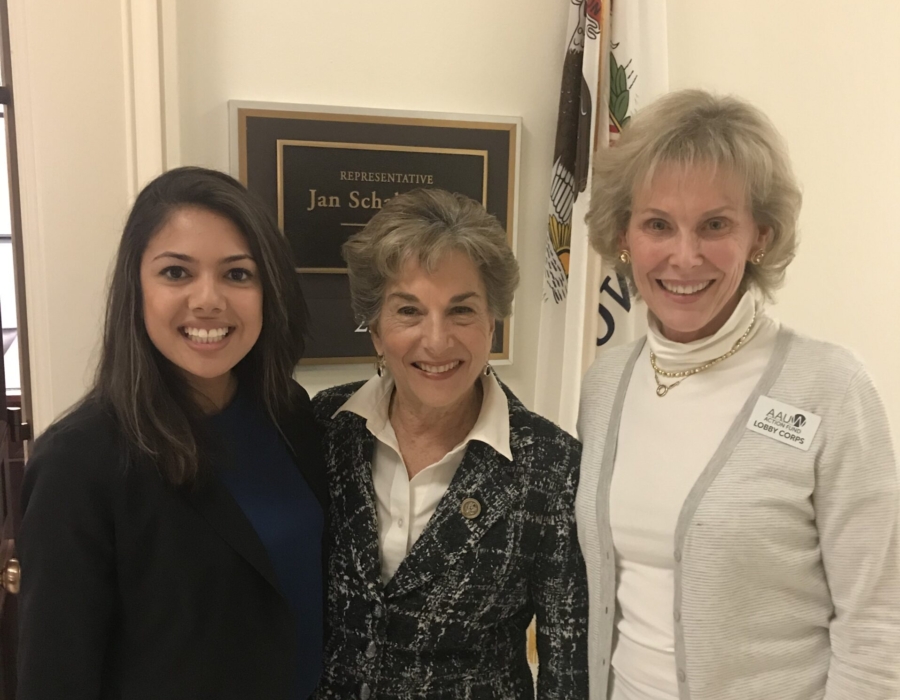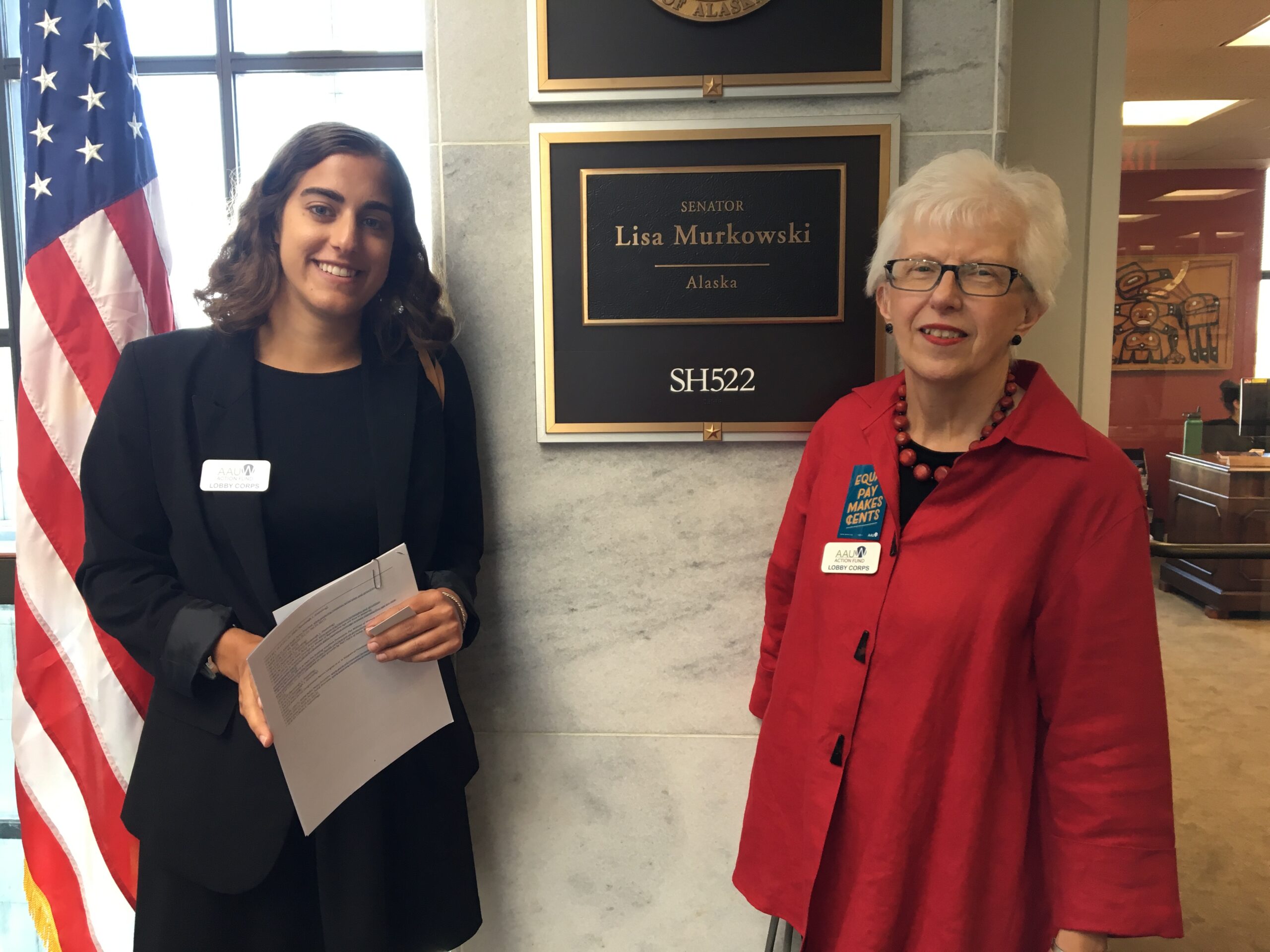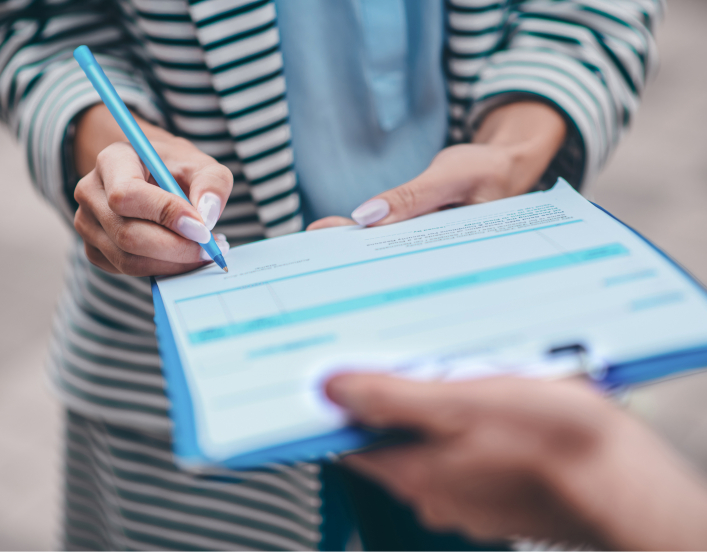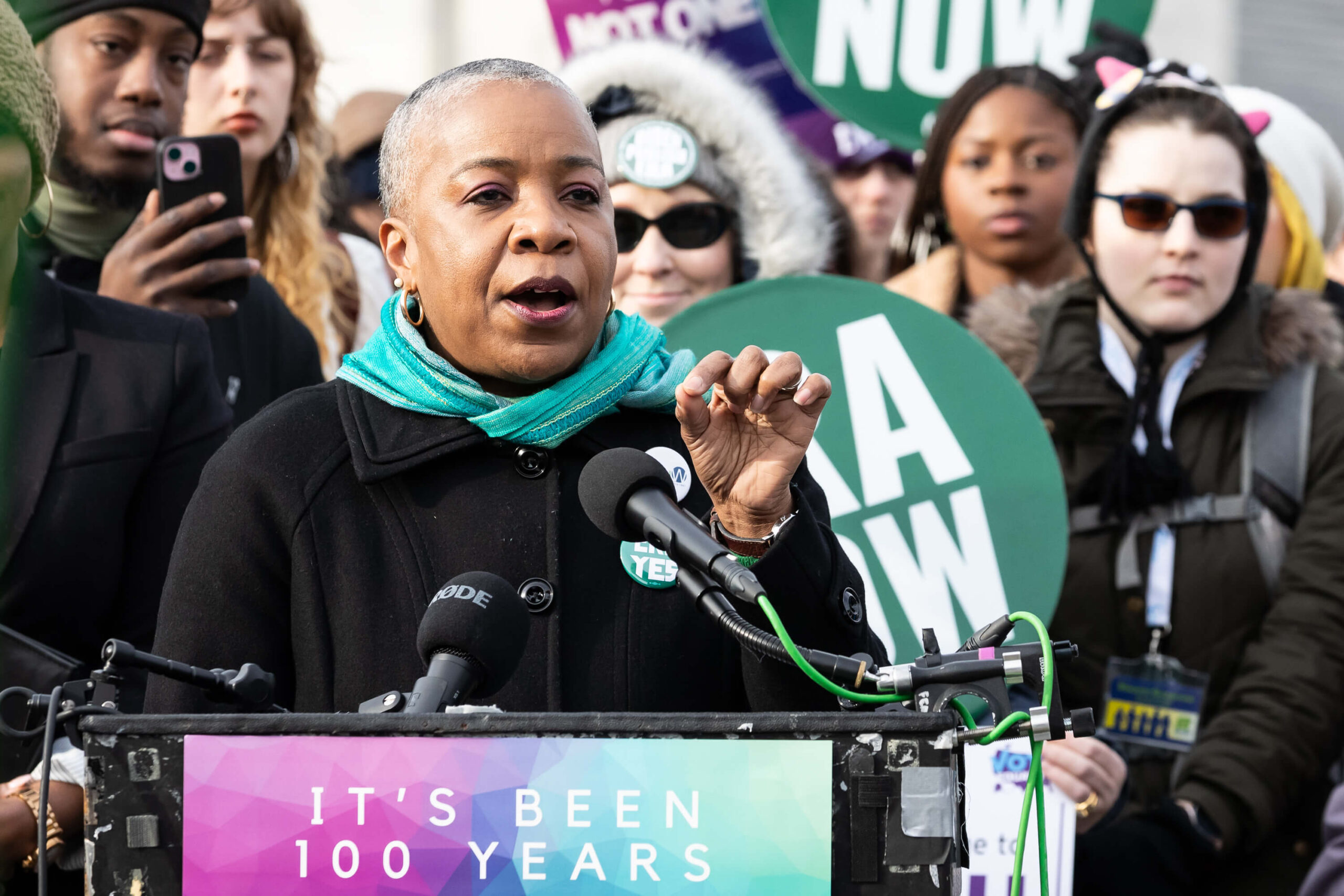How to Hold a Meeting with Your Elected Officials
Defending Higher Education: Advocacy Strategies for In-District Meetings
Face-to-face advocacy can drive real change. This session guided members on how to set up in-district meetings with members of Congress, maximize town hall participation, and effectively use key talking points during the upcoming April congressional recess. Check out our Meeting Your Members of Congress Toolkit and learn how to make your voice heard.

Influence Policy
Meeting with your member of Congress — or their staff — is one of the most impactful ways to influence policy. You can meet face-to-face or virtually via Zoom or a phone call. All are great ways to develop a relationship and influence the positions they take on issues affecting AAUW’s Public Policy Priorities.
You don’t need to be a policy expert or a seasoned advocate. You just need to care, be prepared, and speak from the heart. This guide walks you through it, and applies to meeting local and state officials as well.
- Find Your Legislator: Visit aauw.quorum.us/officials or call the Capitol Switchboard at 202-224-3121 to find your member of Congress.
- Contact the Office: Call or use the contact form on your legislator’s website.
- Say you’re a constituent and AAUW member, be clear about your issue (e.g., education, civil rights, pay equity, etc.), and request a 15–30 minute meeting.
- Here’s sample text to get you started: We are members of the [branch] of the American Association of University Women (AAUW) of [state]. AAUW is a national nonprofit of more than 100,000 members and supporters across the country dedicated to advancing gender equity for women and girls through advocacy, education and research. We would like to schedule a meeting with Senator/Representative [name] or an appropriate member of the Senator/Representative’s staff to discuss [key issues].
- Be Flexible: Congressional recesses are ideal for in-district meetings or town halls. This time is designated for legislators to meet with their constituents in their home states or districts. Offer date options and be open to meeting with staff—they’re influential too. Click here to see the 2025 congressional schedule.
- No time for a meeting? Ask about upcoming town halls or public events.
- Know the Goal: Focus on one issue and make a clear ask. Are you asking your legislator to vote for or against a bill? Co-sponsor a measure? A specific request makes your visit more effective.
- Know Your Story: Use talking points to stay focused and share how the issue affects you or your community. Personal stories help illustrate why your issue is important and leave a lasting impact.
- Do Your Research: Learn about your legislator’s voting record (visit AAUW Action Fund) and statements on AAUW issues. Gather a few key facts about how the issue affects women and marginalized groups from research, polling data, news clips, or op-eds.
- If you want insight into the member’s record or talking points on AAUW’s Public Policy Priorities, contact advocacy@aauw.org.
- Plan Ahead: Decide who will join you — a solo visit is good. Bringing AAUW members or partners who represent the communities affected by the issue you are discussing can even further strengthen your message. If you’re meeting in a group, plan a speaking order beforehand so all are heard.
- Bring Materials: Leave behind a one-page letter outlining your position for the legislator or staff. Click here to find copies of AAUW letters and coalition sign-on letters related to AAUW’s public policy priorities.
- Be Professional and Polite: Dress neatly, arrive early, and thank staff for their time. Introduce yourself as a constituent and share your affiliation with AAUW.
- State Your Ask: Make your ask upfront. For example, “I’m asking Sen. Jones to co-sponsor the Gender Equity in Education Act. As a former educator, I’ve seen firsthand how sex discrimination in school continues to impact women and girls.” Stay Focused: Share your story, cite one or two facts, and make your ask again.
- Listen, Too: Give the legislator or staffer a chance to respond or ask questions. The legislator’s response won’t always be clear, so listen carefully and take notes. Don’t worry if you don’t have all the answers — saying “That’s a great question, let me follow up with more information” is a strategic and thoughtful response.
- Take Pictures: If allowed, take pictures during the meeting with the elected official or outside the office. Share on your social media and send to us at advocacy@aauw.org.
- Alert the Media: If you recruit a large group of people, local media might be interested in covering your visit.
- Compare Notes: Right after the meeting, confirm the information shared by the elected official or staffer with the rest of your group.
- Send a Thank You: Email or mail a note within 48 hours to thank them, restate your ask, and share any follow-up materials.
- Share the Results: Tell us how it went! Your feedback helps shape AAUW’s advocacy and highlights member impact. You can share your notes with us online: aauw.quorum.us/log or by emailing advocacy@aauw.org.
- Stay Engaged: Keep in touch with the office, attend town halls, and respond to AAUW alerts to build a lasting relationship.

You Have the Power to Make a Lasting Impact
As a constituent and AAUW member, your voice carries weight. What matters most is showing up, speaking sincerely, and staying engaged.
Many of our members have discovered that advocacy is deeply rewarding — a meaningful way to use your life experience and values to shape a better future for women and girls. Your presence matters. You can do this — and you don’t have to do it alone.
Visiting Washington, D.C.? We can help set up a meeting or invite you to join us for a Capitol Hill Lobby Day.
Related
How to Organize a Candidate Forum

How to Organize an Effective Petition Campaign

How to Work with the Media

